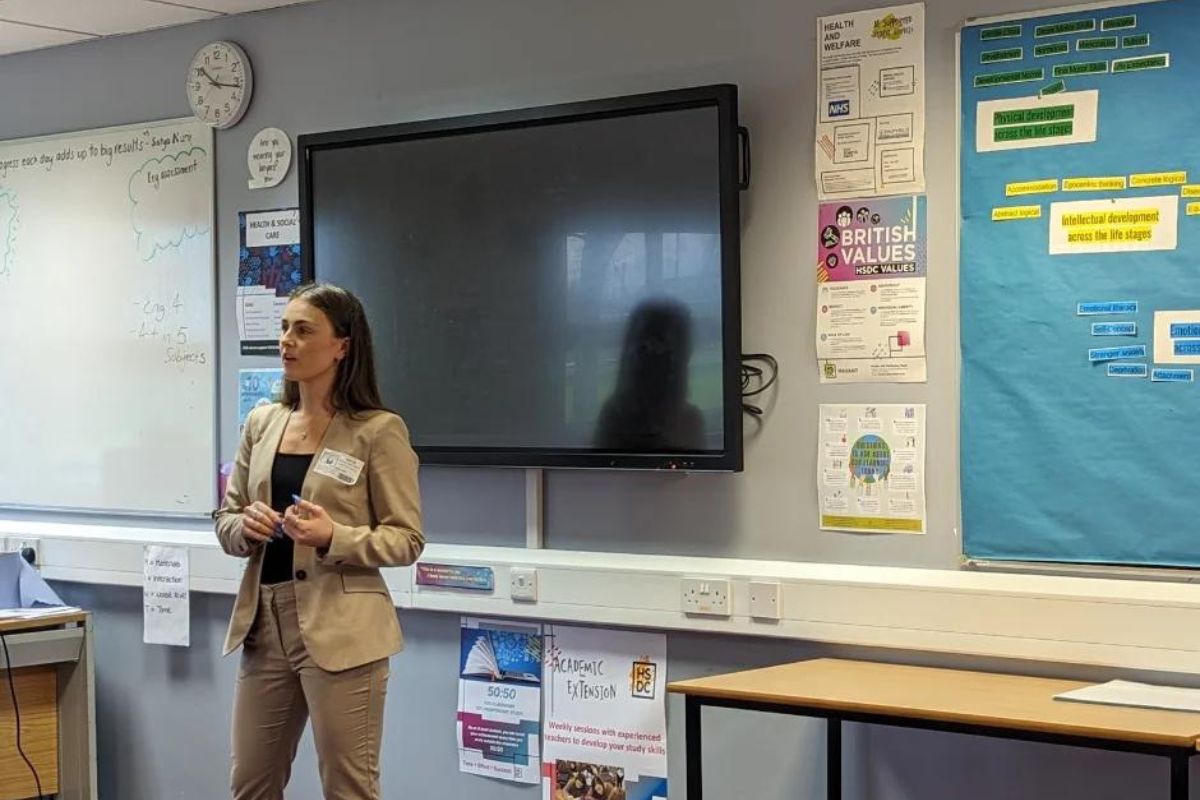Higher Technical Education, Higher and Degree Apprenticeships and Levelling Up

To level up local economies, we must focus on the skills provision that has the biggest impact on raising local productivity. From this perspective, higher technical education (Level 4-5), higher apprenticeships (Level 4-5) and degree apprenticeships (Level 6) will have a key role to play.
Higher technical qualifications, and higher and degree apprenticeships are also crucial as an important route to and through Higher Education that could significantly support the levelling up agenda. The ‘traditional’ English HE model can result in a brain drain from some localities. Talented young people from relatively poor localities often leave to study and don’t return.
Links with Local Jobs and Local Employment
Higher and Degree Apprenticeships are jobs and higher technical education will frequently be linked to a job. Such programmes can act as creative disrupters. A talented individual will stay locally where they combine study with work and attain a graduate level of occupational skill and a qualification.
Higher Technical Qualifications and higher and degree apprenticeships are also stage, not age-based programmes so can be used at an age that suits individuals. This is a benefit for localities seeking to develop the skills of their existing workforce.
No one denies that disadvantaged individuals leaving schools and colleges need support, but from a levelling up viewpoint this focus is problematic. If we’re to raise productivity in left behind localities, a key focus must be on those already in work. Put bluntly, a poorly trained unproductive 25-year-old has another 40–45 years of unproductive working life ahead of them.
Management Training in SMEs
To deliver on the levelling up agenda we must focus on the skills needed in local economies to raise productivity and not on the programmes providers want to deliver.
It is surprising that many campaigned against the use of the apprenticeship levy to fund management training. From a levelling up perspective, the major skills issue that remains to be tackled is poor leadership and management, particularly in the long line of SMEs with low productivity, low skills, and low pay.
It is also worth noting that using levy funds to improve the skills of NHS managers will undoubtedly improve local healthcare provision. Every LEP plan concerned with levelling- up should have a focus on raising management skills.
Regulation
In the Institute for Apprenticeship and Technical Education (IfATE), we now have a strong national organisation with substantial expertise. In addition to ensuring the country has the apprenticeship standards and the T Levels and Higher Technical Qualifications employers need, the IfATE is undertaking work to ensure programmes support the delivery of the Green Jobs agenda and is developing occupational career maps to help individuals reach their potential.
The IfATE is in an ideal position to advise and report on how occupational standards, apprenticeships, technical and higher technical education are contributing to the levelling- up agenda along, with other core policy objectives: raising productivity, supporting delivery of public sector services, increasing social mobility, enhancing workforce diversity and the Green Jobs agenda
We also need far more engagement from the HE regulator, the Office for Students. For example, there’s little focus on apprenticeship and technical education in its requirements for university Access and Participation Plans.
More broadly, social mobility measures in HE need to be reconsidered. In the context of levelling up we need a far greater focus on apprenticeship, technical education, lifelong learning, and adult learners.
Ministers have proposed targets for higher technical qualifications and degree apprenticeships. UVAC believes there are opportunities for all universities to offer some provision and for substantial growth. The problem hasn’t been a lack of desire by universities to offer apprenticeships, but instead we have a system that has hindered their growth and expansion.
Indeed, there has been a hostile environment to degree apprenticeship that has undermined the ability of universities to invest in the development of this provision.
Talk of targets is welcomed, but we also need a plan focused on removing barriers to the growth of higher and degree apprenticeships and higher technical education.
Recommendation 1
We need a comprehensive and ambitious national growth plan for higher and degree apprenticeships and higher technical qualifications focused on productivity, delivery of public sector services, levelling-up, workforce diversity and the Green Jobs agenda, linked to a series of local skills plans.
Recommendation 2
If higher and degree apprenticeships and higher technical qualifications are to make an optimum contribution to levelling up, they must be developed, funded, promoted, and delivered as programmes for adults and young people.
Recommendation 3
The role of the IfATE should be to advise and report on how occupational standards, apprenticeships, technical and higher technical education are contributing to raising productivity, enhancing the delivery of public sector services, levelling-up, social mobility, improving workforce diversity and the Green Jobs agenda.
Mandy Crawford-Lee, Chief Executive, UVAC
Post-16 Education and Skills: Levelling Up Everyone, Everywhere
Campaign for Learning’s paper Post-16 Education and Skills: Levelling Up Everyone, Everywhere, is a collection of 18 articles and recommendations by leading stakeholders and thinkers across the post-16 education and skills sector.
The paper covers six key considerations for the Levelling Up agenda – national and place based strategies, young people, lifelong training, lifelong learning and post-16 providers.
As the articles show, from the perspective of post-16 education and skills policy, levelling up is about people as well as places – the policy canvas is vast, the perspectives diverse and the insights important.
Together, our authors demonstrate the need for strong, nationally based as well as place based strategies if everyone, everywhere aged 16 and over are to level up through education and skills’
Part 1: Levelling Up and National and Place
- Andy Westwood, Professor of Government Practice, University of Manchester - Levelling Up and the Department for Education
- Sam Freedman, Research Fellow, Institute for Government – Levelling Up and Post-16 Education and Skills
- Fiona Aldridge, Head of Skills Insight, West Midlands Combined Authority – Levelling Up the West Midlands by 2030
- Mark Hilton, Policy Director, London First – Levelling Up London by 2030
Part 2: Levelling Up and Young People
- Geoff Barton, General Secretary, ASCL - Levelling Up and Education: Lots of Stuff but Little Substance
- Sam Tuckett, Senior Researcher, Education Policy Institute – Levelling Up 16-19 Education
- Becci Newton, Director of Public Policy and Research, IES – Levelling Up Participation by 16-18 Year Olds
- Kathleen Henehan, Senior Policy and Research Analyst, Resolution Foundation – Levelling Up 18-24 Year Olds in England
Part 3: Levelling Up and Lifelong Training
- Olly Newton, Executive Director, The Edge Foundation - Placing Vocational Education at the Heart of Levelling Up
- Mandy Crawford-Lee, Chief Executive, UVAC – Higher Technical Education, Higher & Degree Apprenticeships and Levelling Up
- Ewart Keep, Emeritus Professor, University of Oxford – The Role of Employer Training in Levelling Up
Part 4: Levelling Up and Lifelong Learning
- Stephen Evans, Chief Executive, L&W – Levelling Up in England through Lifelong Learning
- Susan Pember, Policy Director, HOLEX – Levelling Up as a Nation of Lifelong Learning
- Simon Parkinson, Chief Executive, WEA – The Future of Adult Learning is in the Hands of Local Leaders
Part 5: Levelling Up and Post-16 Providers
- David Hughes, Chief Executive, Association of Colleges – Well-Funded Colleges to Serve Every Community
- Nick Hillman, Director, HEPI – A ‘Higher Education Institute’ in Every Community
- Chris Hale, Director of Policy, Universities UK – Levelling Up and Widening Participation into Higher Education
- Jane Hickie, Chief Executive, AELP – Levelling Up is as much about People as Places












Responses